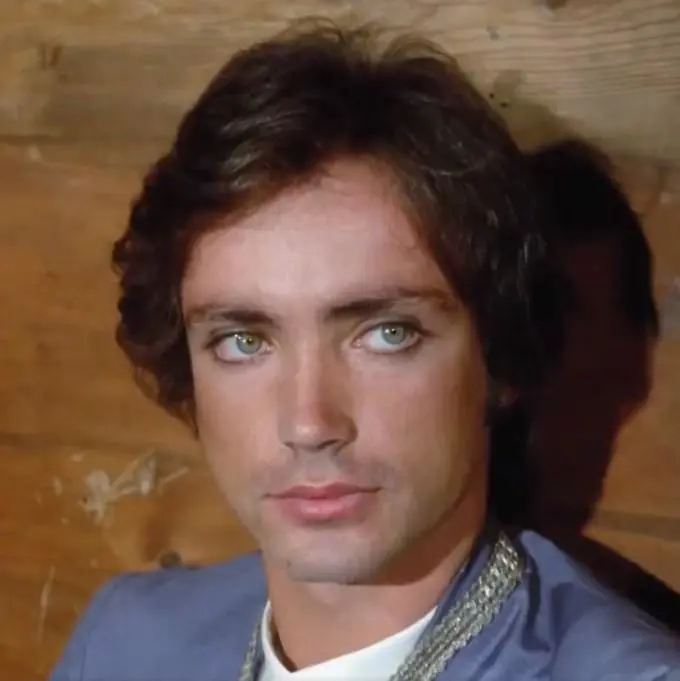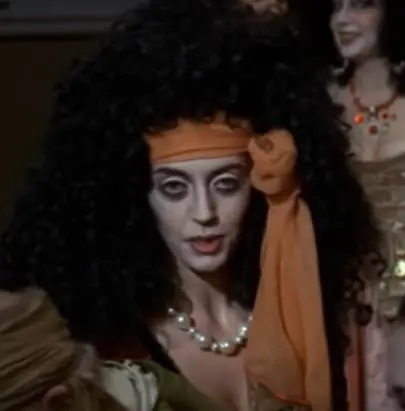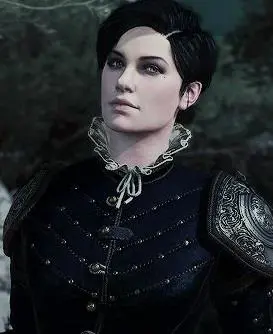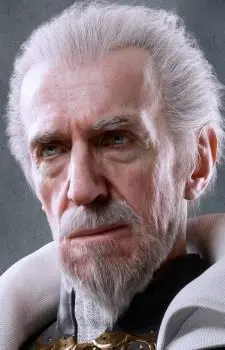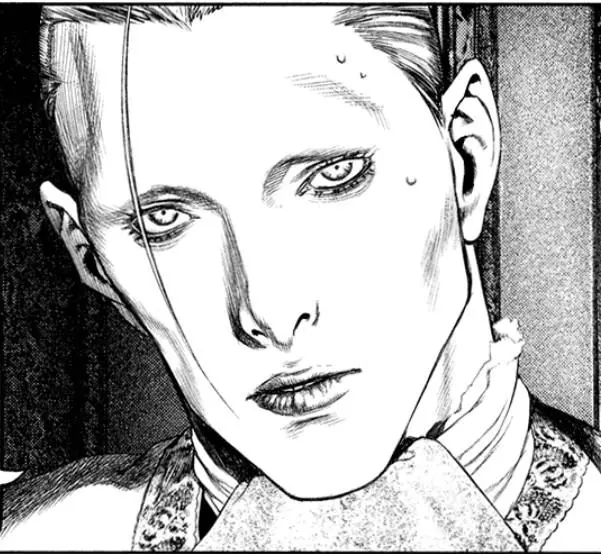* * *
"Take the cart," the poacher half-offered, half-ordered. "You'll be cutting up the beaten one as we move."
"I'll gut him in a cart shake," Hel snapped angrily, applying a linen pouch with a hemostatic herb inside.
"We must run," repeated Maryadek. "By noon the news will reach the Count's castle. By evening the whole county will be on our trail. If we don't cross the border by tomorrow morning, we can hang ourselves on the same tree. So take the cart."
"And the trophy horses?" Gamilla showed an unexpected marauder's ingenuity. It was normal to hear it from her, though; the noblewoman understood the value of war horses.
"We can't," said the practical poacher, who had clearly seen the underside of life. "We can't afford them, it's obvious. So they're stolen. And again the rope on the tree."
Gamilla cursed in a vivid and unladylike manner. Grimal was silently helping Elena. The servants of the dead were scattering, apparently at the same time they were scavenging their master's goods. The women were shouting, but they did not enter the square.
"Hurry up!" Maryadek shouted. "Before they remember our faces!" He looked longingly at the crutch, recognizing it as a prominent feature.
Things developed in a confused and hectic manner, Artigo had a good chance of escaping again, but the boy fell into prostration and just lay on the wooden step outside the stables until Cadfal picked him up.
"Come on, boy," the big redeemer said gloomily, making Artigo look like a midget. "You've made a mess of things today."
The child sobbed again, quietly and with hopeless longing. Perhaps Artigo could understand, from his point of view the bad men had just shattered the dream of returning to a life of deference, servants, and fine sheets. Pulled back to the cold, the shaky saddle, the dirty clothes, and the crows in the cauldron. But no one sought to understand him. Or rather, the only person capable of it was groaning under Hel's hands.
"I t-t-t-thought b-b-b-brethers were scarier," Gaval stammered, showing his wits to be quite good. To understand what the dirty, unshaven Ranjan was up to, he had to know more or less about city life and be able to draw logical conclusions.
"Because you're a fool," the crossbowwoman said as she helped the wounded man into the cart. "A two-on-one fight is a sure death for even a very good fighter. Only great masters can fight off three. This one took out five armored men before we arrived and stayed on his feet."
She corrected Brether's slack hand and finished quietly:
"Not gray."
The short phrase sounded mysterious to the others, but Elena immediately understood the crossbowman's train of thought or thought so. Not gray - so not the Moon Reaper, who was already old. Gamilla must have realized who owed her a shot in time. There might be consequences to that realization, but they wouldn't come right away, so Elena forbade herself to think about it.
They left the town of wild-honey farmers and carpenters quickly, noisily, unprofessionally, like a tabor, not a company of dangerous conspirators, cleverly covering their tracks. But still, they left, seemingly even without spies on their tails. Only Grimal and Maryadek cut a couple of purses from the belts of the dead, hoping there would be some silver among the coppers. Elena stitched up Ranjan as he went, stopping the blood and applying bandages, but the Brether fell into unconsciousness and, judging by Elena's experience, was out of commission for at least a couple of weeks. He stayed in the cart with Artigo
"Why didn't you run away?" Elena asked briefly of Maryadek, who was working his crutch with grim exasperation.
"I'll run away," said the poacher. "You're too edgy and dangerous, you get into the noose yourself and drag others along with you. But I'll run away later. Now we must all leave. They won't sort it out."
The Highlander was silent on who and what wouldn't sort out. It was clear enough.
We moved quickly and without lanterns, trying not to attract attention and to get as far away as possible before sunrise. There were no maps, of course, but judging by the stone signposts, there was a good chance of getting out of the county quickly. Of course, that didn't cancel the pursuit, but it made it more difficult.
Pantin seemed to have eased Ranjan's pain imperceptibly but that was all he could do. The whole medical part had to be taken care of by Elena. The horses had been left without a night's rest and now had to haul the load again. From time to time Ranjan came to his senses and tried to go on his own, and Elena felt a regular urge to punch him in the forehead, as the current state of the great swordsman would allow it. Gaval was silent and afraid, it seemed, even of his own shadow. Gamilla was not throwing words around either, and together with the minstrel they formed a strange pair in which each member hated the other but had to cling to him. Apparently, the crossbowwoman still counted on a share of the creative worker's future earnings.
Elena was tormented by sleep deprivation and, checking the condition of the wounded at rare rests, thought - what the hell do they need Pantin for? What good is a warrior-mage who does not sorcery and does not fight...? Well, almost no sorcery. At the thought that now the sickness would be added to the general fatigue, it was getting bad.
But still, he could have helped some more!
So they walked on through the night and all the morning by the light of the pale sun rather than the moon. They walked on through the night and the morning by the light of the pale sun instead of the moon. There were sparse pockets of life nearby, judging by the smoke, but no villages yet. It was warm and unaccustomedly dry, but there was an unhealthy gloom rising behind them, to the north. As Maryadek confidently reported, the thin gray band on the horizon would turn to rain by evening, and the next day, most likely, a real blizzard with wet snow. Maybe even sooner. The news, which before would have caused widespread despondency, was now received with enthusiasm and hope - hurry! Bad weather is a fugitive's best friend.
The road was completely empty, the pursuers had either fallen behind or gone another way. So far everything had been going more or less well. Even Maryadek, grey with fatigue, relaxed a little. And then the travelers saw the familiar carts of the circus performers. They, one must assume, had also been walking all night, and now they had set up camp in a clearing about fifty meters from the road, so that they could be at a distance and, if anything happened - rain, for example - return to the highway without pushing the carts too far through the mud. The fire was smoking, the mules sadly stuck their muzzles into the skinny sacks of feed. A clown sat by the fire with a sad look and roasted something vanishingly small on a thin twig, it seemed like a crust of bread.
Maryadek cursed softly, jerking his head back. There, on the horizon, appeared a scattering of small dots with a bright spot, most of all resembling a flag. Ranjan muttered something inaudible and lost consciousness again. Gaval was clearly sad. The Redeemers somehow suddenly pulled themselves together. Elena again felt the sliding glances on her, as the day before, after Ranjan's hasty departure.
She wanted to scream at everyone at the top of her voice, something like "What the hell?! I don't give a damn about you and that little moron! I just wanted to find a new swordmaster and get away from the capital! Stop staring at me, save yourself if you can!" Moreover, Elena clearly understood that by and large, nothing was stopping her from breaking loose and running away right now. A travel bag on her shoulder, a knife on her belt, a sword on her back. A cheap one, of course, a practically ordinary cleaver forged by an ordinary blacksmith from soft iron, but still a blade. And most importantly - a tube in which the guild diploma, the last gift of Flessa. With it, she can practice medicine and pharmacy in any city.
By the way, the redeemers follow Elena and most likely they will follow her now. That is, two tough bodyguards will keep her out of trouble. So, what is she looking for in a dubious company that's doomed anyway?
In the course of these reflections in the head clearly, clearly, formed a simple question: would you go all alone...?
Well, really?..
The stares grew more insistent. Artigo began to sob again. Ranjan was delirious; the wound seemed to be inflamed after all. Gaval whispered prayers. Elena looked around in a huff, realizing she had to choose again. She caught Pantin's gaze, his expressionless eyes a dirty gray. It was unclear what the warrior-mage was thinking about, but a five-hundred-year-old prick looked pensive, and in a special way, as if he were a natural scientist or a psychologist making experimental observations.
Dammit! Elena thought distinctly and expressively.
"What are we going to do then?" Maryadek asked quietly, as if into the void. No one answered him.
They walked a little farther, Elena looked back again and saw that the dots had gotten closer. Whoever was following the fugitives down the road, the pursuers were in no great hurry. Who knows, maybe it wasn't on their heads? She wanted to hope so, but common sense mockingly suggested that it was on yours, of course, but whose else?
"Over there," Elena pointed in the direction of the circus performers. She couldn't even explain why she'd decided that way. Probably, her subconscious concluded that it was pointless to just run - sooner or later they would catch up with her. At least there was some variety here.
When it became clear that a rather large company was approaching, the clown pulled himself up and said something softly, addressing his invisible companion. Judging by the bucket in her hands, the girl was lubricating the cart axles. Elena raised her empty palms, demonstrating that she was not looking for a fight, and stepped forward. Everyone took it for granted, causing the medicine woman to have a new bout of anger. Found a fucking negotiator and a diplomat...
"Good day!" she greeted the circus performers trying to sound as confident and casual as possible.
"And the same to you," the clown said glumly. The girl next to him put the pail on the ground and silently wiped her face with her sleeve. Then she, too, greeted the sudden guests, very discreetly, on the verge of open hostility.
Elena introduced herself, changing her name once again, now she called herself Siriol, that is, "Merry" in the sense of "entertaining". The clown turned out to be Kimutz, a name that seemed oddly and vaguely familiar to Elena, but she couldn't remember where she'd heard it before. Kimutz had the appearance of a man disillusioned with life to the point of philosophical humility and zen. When looking at Kimutz, one is immediately reminded of the depressed Donkey Ia from an old cartoon. The clown was also clearly drinking, a lot and with a soul, the pernicious passion reflected on his face and in the yellowed whites of his eyes. As a healer, Elena would advise absent relatives to start saving for the funeral. Now it was clear why Kimutz was dressed as he had been before the performance; it seemed he simply had no other dress, he must have drunk it.
The blond-haired, short-cropped acrobat named Joaquina was young, flexible, and dressed in a man's suit of good, though shabby cloth with stockings instead of pants. Under other circumstances, Elena would have looked at her with some interest, but now her head was occupied with other things. The circus girl would have seemed very pretty if you didn't look closely at her eyes. The girl had the hard and cold look of a person who had been trained from an early age to fight for life, who did not believe in kindness, and who knew that what seemed to be offered for free was the most expensive.
There was an unhealthy pause. Everyone introduced themselves and tried to figure out what to do now. The strolling troupe was clearly wary of the strangers. Elena couldn't even formulate a request, and the others expected a miracle from her, except for Pantin, who still seemed to be a bystander, completely alien to the process.
"And we're wandering here," Elena finally squeezed out, spreading her arms again.
"Well, yes..." Joaquina agreed after some thought. "We too."
Elena looked at the sun, squinting slightly, and said a new phrase:
"Bad times for making money. Meager."
She was dying to look back at her distant pursuers to see if they were really far away. But the woman knew that she should not show her fear so openly. But she knew she shouldn't show fear so openly, judging by the slanted glances of the circus people, Elena's companions did look back and burned the whole intrigue.
"That's true," Joaquina finally agreed. Her voice was rough, like that of a person who has to shout loudly and often, but overall it was quite pleasant, with a kind of lingering accent. It seemed as if bitter honey was being poured into the ears.
"You don't have enough people," Elena pointedly looked at the carts, which were too big for the tiny troupe of two people.
Apparently, she was misunderstood. The circus performers immediately straightened up. The acrobat, as if by chance, squatted down, taking hold of the bucket. Kimutz took a step back, looking around in search of something heavier.
"No, no!" Elena rushed over. "We're not robbers! We're... well..."
Damn it! Damn it! DAMMIT...!!!
"We are like you," she improvised on the fly, realizing that she had nothing to lose, but only to rely on chance and luck. "Walking, wandering, giving performances."
"A-a-a…" Joaquina responded vaguely, looking behind Elena's back.
The women were silent. The clown relaxed a little, realizing they were not going to beat or rob. The unknown burned her back, but Elena did not turn around. The pause dragged on, on the one hand, the healer knew that in difficult negotiations, whoever was the first to break a long silence puts themselves in a clearly disadvantageous position. On the other hand, an unknown number of unknown horsemen in the rear heated her butt.
Or maybe we should kill you without any frills, Elena suddenly thought. The thought was surprisingly sober, sensible, and cold, like a gravestone in the autumn rain. A couple of months ago, nothing like this could have occurred to the woman, but a couple of months ago she didn't know how the bones of the skull crunched under a hammer, or what human blood tasted like.
No, come to think of it… she wouldn't even have to call for help. The Draftsman's knowledge would be enough to take out the circus people with a knife quickly and relatively cleanly. Throw the corpses away, and position themselves near the wagons, as if that was how it should be. Two large wagons, just right for such a company, wouldn't arouse suspicion. The main thing was to leave as little blood as possible.
Elena looked at Joaquina and felt how her hand, in an imperceptible and harmless gesture, easily, like a feather, crawled towards the wide belt. The joints moved softly as if lubricated, only when her fingers touched the wooden overlays of the knife handle. Elena comes to her senses. She shakes her head as if shaking water from her short and unevenly cut hair.
She can't... that's not right.
"And what are you doing?" asked Joaquina, her whole appearance demonstrating a sudden awakening of interest.
It seemed to Elena that a spark of real fear flashed in the acrobat's eyes for a split second. Could it be that the circus performer guessed the dark intentions of the woman she met? Itinerant performers see a lot and communicate with different people they meet. They are supposed to understand people and read the reflection of secret thoughts on their faces.
Someone exhaled loudly behind him, probably Grimal. The tired horse whinnied softly. Artigo sobbed.
"We..." Elena wondered how the motley crew could make a living. "We do different things. Here he is..." she waved her hand vaguely. "A minstrel. Sings frivolous songs about love. And heroism. With a happy or tragic ending. We also have... a fighter. He puts on a show and waves a blade beautifully. Only..." Elena was carried along by the waves of fantasy, like a leaky boat caught in a storm in its single tattered sail. "He was badly beaten."
Against expectation, Joaquina suddenly nodded understandingly with words:
"Did you run into some noble one?"
"Worse," Elena shook her head, immediately cursing herself for her long tongue and trying to think of what could be worse. "Decided to flaunt it in front of... a fencer. From the brotherhood."
"O-o-o..." The clown and the acrobat exchanged glances in unison and with seemingly sincere pity. "This is stupid. Careless."
"Yes, he's a fool," Elena agreed sincerely. "But he was clever, and he wasn't beaten to death. He'll come to his health and make money for us again."
"Who else do you have?" It seemed the circus performer was balancing between sincere distrust and doubt: what if it's true?
"A crossbowman," Elena began to 'braid' the story more confidently, hoping that Gamilla would not resent that she, though low-born but still a noblewoman, was being written into a despicable caste. "Hits anything on the fly."
Once again there was a hitch. Elena couldn't come up with any more talents for the companions. All of them could basically just punch and kick and look like character actors of a single role accordingly.
Character actors…
A single role.
"But in general we are more theatrical, the woman blurted out."
"What?"
"Theater, I say!" Elena tried to put in her voice the maximum of good-natured superiority, which, of course, she did not feel. "We want to stage a play, we'll rehearse it while the winter is cold, and in the spring we'll go to the big cities and craft fairs."
"The play," Joaquina repeated, frowning, and asked the natural question. "Where are your props?"
"It's gone," Elena sighed sincerely, waving her hands. "We lost it. We were walking through the mountains, there was a storm. The frost hit so hard that we had to burn everything in the fire. Otherwise, we would have frozen. That's why we came to you. You seem to have something, maybe we could join forces?"
"What, were you going through the pass?" the clown gaped, his jaw hanging open.
"Yes," Elena hurried to flesh out the improvised idea with little details to make it look at least the slightest bit plausible. "Everything in the east is... restless, noisy, boisterous. We wanted to get out of there, or else," she remembered Gamilla's recent remark. "Where there are men with guns, it's easy to play for nothing, maybe you have to pay extra."
"That's right," sighed Kimutz, who seemed to be no stranger to such experiences.
"What play were you doing?" Joaquina was still skeptical, and Elena could feel her back itching under the stares of her teammates. The thought flashed through her mind again: maybe she shouldn't waste time. Every minute of fruitless conversation was a minute that wasn't spent covering her tracks and cleaning up bodies.
"The play!" Elena proclaimed, clapping her hands. "A marvelous, incredible, unique, beautiful play! A performance the world had never seen before!"
At that moment she remembered "Moulin Rouge" and the dwarf Lautrec, who at the beginning of the movie had announced to the handsome McGregor in much the same way an avant-garde-revolutionary play called "Faerie". But such a trick would not work here, something else was required.
Funny, she thought. The previous year it had seemed to Elena that the Ecumene was grinding her consciousness day by day, dissolving the soul of the girl of the industrialized world until she was completely transformed into a local. Now it was the opposite. She regularly felt like a passenger on a submarine looking at a foreign world through a thick porthole.
There's just one problem - the porthole is only in her head, and the world can kill with a single touch.
"Am, I don't believe it," Kimutz said skeptically, then hesitated, glancing at Joaquina with a look that said, I apologize for running ahead of my superiors.
"Easy with a troupe like this!" proclaimed Elena, turning and giving her companions a broad gesture. In other circumstances, she would have smiled as she watched her companions try to play actors, each to the best of their ability, with the exception of Maryadek. The poacher didn't seem to understand what they were talking about and just glared sidelong. The dots drew closer, they were clearly riders under the banner, a dozen and a half of them. Their appearance categorically fueled inspiration, and also pricked Elena with an assumption: what if it's the Baron...? He will recognize them and no fairy tales about the theater will not pass. That was assuming that everything would be successful.
D-damn... Or "Ynfelltitharfymhenasaithcenedlaethauohynafiaidadisgynyddion!!!" if you like the local language.
"We have been nurturing the idea for a long time, just like a mother's child, but now the world will see it and shudder with delight," Elena improvised inspirationally.
"What is this play about?" Joaquina asked thoughtfully.
"About life, death, and, of course, love," Elena found herself, her head stuck on everything that had to do with art. It seemed to be a win-win situation. She can retell, for example, "Romeo and Juliet", but it was necessary to sit down, remember, and write down at least the general theses on the wax tablet. And she couldn't remember anything right on the fly.
"That's understandable," the acrobat shook her head. "But what's the story?"
"It will be about..."
Elena felt like a character from the Moulin Rouge again, who had to improvise something great in front of the Duke. Only the stakes were higher, the Duke, in any case, could not kill the comedians, and here failure meant inevitable death. How unpleasant it was to find herself at the center of the negotiation process, as a person from whom they expected something decisive and responsible.
"About..."
The pause dragged on, and Elena saw the acrobat's already less than benevolent gaze turn to ice-cold indifference. It didn't seem to work.
"Who watches your shows?" She blurted out in a desperate attempt to buy some time, even half a minute.
"What?"
"Well, who's watching, who's paying? Men, women, children? Merchants, peasants?"
The circus people looked at each other in some confusion, then stared at the self-proclaimed creative worker.
"Why do you want to know?" The clown asked suspiciously.
"I'll tell the story for…" Elena almost said "audience" in Russian, she raised her nose importantly. "The public."
"Well..." Kimutz scratched his broad bald head, wrinkling his forehead. "I couldn't say so at once."
What to do, Elena thought tensely. What to do... if there was even half an hour to sit, to remember, to organize the acts.....
"Mostly men," the acrobat spoke quickly and clearly, someone whose thought and word clearly went hand in hand. "They also throw money in the hat. But if there's a story of repentance, the women give coins, too. Or at least some food."
"And the nobles?" Elena realized that she was almost cornered, but still tried to maneuver to the last. The horsemen's banner seemed too bright. "Rich people?"
"No way," the girl looked at the medicine woman almost pityingly. "Where do we get such an audience? We'd go bankrupt on the decorations alone.
"Rich people are spoiled, you can't just show them a painted rag," Kimutz said. "They need it to be beautiful."
"We'll fix it," Elena raised her palm confidently. "Let's interest and attract them! With elegant decorations in a healthy minimalism."
"How's that?" In the acrobat's gaze doubt was still struggling with something else... Something incomprehensible, unreadable for Elena.
The healer and self-appointed producer looked at her interlocutor, noting something she hadn't noticed before. Still beautiful, but obviously not once darned dress, smooth stitches clearly show the painful attempt to combine beauty, durability, and economy of expensive threads. The shadows under the acrobat's eyes, the first wrinkles in the corners of her lips. The hairstyle was clearly born of an attempt to make it beautiful with sheep scissors over a basin of water.
She's just like me, Elena thought. Yes, there's a gap between us, but we're so much alike... Her life is a constant balancing act of survival. Regular cold, frequent malnutrition. Pain in her tired body, aching joints, strained muscles. Coin to coin, skinny wallet. The eternal fear that someone will offend, or even rob or just kill because the road is always dangerous. Responsibility for a fat drunk, swollen because of kidney disease, regular thoughts: why not send it all to the ass? But also the fear: what will I do, what can I do, who will be glad to see me?
Now Elena clearly understood that the second emotion in Joaquin's gaze was hope. Ridiculous, ridiculous for the acrobat herself, but hope nonetheless. And then the producer was hit like a hammer on the head. The thought was short, simple, and bright, like a lightning strike. Delusional. That's it. But... she couldn't think of anything better, and there was nothing to lose.
"So..." Elena raised her hands in a dramatic gesture. "Night. Darkness. Ominous music."
Elena looked sternly at Gaval and asked:
"Are we going to have ominous music?"
The minstrel nodded often, showing off his little instrument. As proof of his musical talents, he quickly thumbed through the metal plates, extracting a rather loud and ominous melody from the wood, resembling something like Beethoven's Lacrimosa. Or was it Mozart? It didn't matter, though!
"Ominous music," Elena repeated, taking a couple of steps to the side as if clearing an invisible stage, turning sharply to the audience, raising her index finger to demand silence and attention.
"A man appears. He is large and strong. His facial features are harsh, with a touch of Evil."
Elena looked at Kimutz and asked businesslike:
"Do you have makeup? So it shows the Evil on his face?"
"Well..." the clown said cautiously. "We can think of something like that..." he held his broad palms over his drunken face. "To begin with, shade the shadows with soot... Yes, we'll think of it, if necessary."
"And we'll make the strength with sleeve pads to make the shoulders look wide," suggested Gamilla, who had either gotten the hang of it or realized that the narrator was in desperate need of some help.
"Exactly," Elena agreed significantly. "This sinister man with the mark of Evil on his evil face is going into the city. He's looking... He's looking for a person."
"A person is looking for a person," repeated the acrobat, who didn't seem very impressed with the concept. "Why?"
"Why?" Elena was defiantly surprised. "To kill, of course."
"Ah..." Joaquina stammered. "Oh, yes."
The screenwriter took in more air, preparing to present the punchline, and blurted out:
"And he has an iron skeleton!"
"Who?" Kimutz didn't understand.
"An evil man. It's from Hell," Elena said in an ominous voice. "It's actually a demon who's taken on the form of a human. He's supposed to kill the woman who's destined to..."
Dammit, and what is it destined to her? They simply won't understand the concept of a changeable future. And the riders are closer and closer... A little more and you can already see the faces and the insignia of the flag.
"She is destined to give birth to the Messenger!" Elena proclaimed, feeling either a genius or a clinical idiot, and hurried to develop the idea before she was interrupted. "The Messenger, of course, is the embodied breath of Pantocrator, but he is born a human being, from mom and dad."
"And this, then, is the mother?" the acrobat clarified. "The one who is to give birth to the Messenger?"
"Yes!"
"A Prophet, then," Cadfal said suddenly.
"Indeed," Elena agreed without hesitation. "It would seem that the unfortunate woman is doomed... She is followed by a monster in human form. It's only similar to a man."
"With an iron skeleton," Joaquina repeated, looking upward, as if imagining the monster created by Elena's memory and imagination.
"Yes! It knows the victim's name and kills every woman who responds to it. But just when evil is about to triumph."
Elena paused dramatically. Gaval spoke fidgetily:
"Yeah, yeah, I already know what'll work here! It's going to be "Wilted Leaf," but I'm going to take out the notes of joy, make the melody a little bit darker, and...."
Gamilla unashamedly sealed his mouth with a firm palm.
"And the woman turns out to have a protector!" Elena literally howled, hoping with all her might that it looked impressive enough. "He's a God-fearing, albeit poor, lovag who had a vision. Or a revelation. Anyway, no one believes him, and he goes into battle to defend the Prophet."
"But the demon has an iron skeleton," Kimutz reminded her.
"Exactly! Lovag is doomed in battle with the unholy spawn! To kill the devilish creature requires the weapons of the angels, the ordinary sword is powerless."
Elena sincerely hoped the ride through the minefield of religiosity, she wouldn't step on any canon.
"But Lovagh's faith is true and deep, he..."
Elena fell silent, frantically remembering what the church said about carnal relationships. There seemed to be nothing to prevent the Prophet from having some kind of love affair, some couple from the Messenger and the Prophet had even formed a family, but the woman was not sure.
"And he is filled with admiration for the lady," she quipped.
"Platonic love, that's good," Cadfal agreed. "Spiritually uplifting. And whoever wants it can think of the rest."
Elena was a little surprised at such tolerance and broad-mindedness expressed by a man deeply religious almost a minister of a cult, but she kept her surprise to herself.
"And he dies in an unequal fight," the screenwriter finished.
"Lovag?" Kimutz seems to be fascinated by the story.
"Yeah. Hmmm..." Elena grumbled, quickly figuring out how to replace the dynamite and hydraulic press in the absence of gunpowder and money for expensive decorations. "He gripped the monster tighter and pushed it into the furnace where the metal was melting. Took it with him."
It's okay, Cameron won't take offense to mixing the two parts, and here you might not live to see the prequel.
"Into the forge?" Kimutz clarified.
"Well, yes," the woman corrected herself.
"The actor will burn up! And we don't have a forge, so we're supposed to stage the play in a blacksmith's shop?"
"He won't burn," Grimal entered the conversation unexpectedly. "One lamp and a light rag with red shreds like flames around the edges."
That's what it means to have a smart, good servant, Elena admired. She said aloud:
"That's what we'll do. If it's properly lit, the light will reflect like a real hearth. The audience's imagination will do the rest."
"And a victory march!" Gaval couldn't take it anymore.
"No!" Elena said no. "Sad music, full of sorrow. Lovag died fighting for all men. Yes, and God's will, of course. Everyone should weep and pity him. And then, in the final scene, you can add a little optimism."
"Or that," Gaval agreed.
"What if the Protector isn't dead?" Kimutz tried to distort the creative idea. "Well, it's... just wounded? The public loves a good ending."
"No," Elena cut off again. "A good ending here is a living mother and saving the world. But for a good story, someone has to die."
"But I'll need a flute," interjected Gaval, who liked the idea of playing on stage instead of in a tavern. "Do you have a flute?"
"There is," the circus boss replied machine-like. "A pipe"
"That'll do. I'll play the pipe and someone taps on the drum. I'll show you how. The drum will set the tune, and the brass instrument will lead the mood. It'll be beautiful."
"I can beat a drum," Gamilla played along as best she could.
"Who plays the demon?" Joaquina asked.
"Him," Elena pointed to Maryadek. The poacher kept a grim, angry expression on his face, only gripping his crutch tighter.
"Well," Kimutz scratched his creased neck. "Lame. Scary. A real creature from hell."
"Lame," Joaquina said with a wince. "What about invulnerability?"
"That's the leg the Dark Jeweler held him by when he pushed him out of Hell," Elena explained.
Maryadek was silent for a moment, his huge nose pointing ominously, and then he agreed abruptly:
"I don't see why not. Just tell me what to do."
"I'll need a wax tablet, though, of course, paper is better. But the wax tablet will do," Elena said. She remembered vaguely that the local theater encouraged improvisation, so none of the performances were similar to the previous ones, which was good; it would save her from having to write out the roles in detail, especially since not everyone in the company could read.
"I only need a couple of days to come up with a general outline with three acts... or five. And then we can rehearse. A week and we'll have a good play. If we move fast, in ten days we'll be on the great plain, and we can go through the towns and run the show. Then we can go to the bread-and-butter places where there's a lot of people."
Joaquina took a long look at the riders, then at the company, tired, exhausted, angry, and it became clear (though Elena hadn't counted on it) that the bluff had obviously failed. Although the acrobat was young, perhaps younger than Elena by a couple of years, she was not stupid and naive gullibility. She didn't believe in the story about a stray theater even for a quarter of a fake penny. She was not tempted by the play about a man from hell with an iron skeleton. That means that everything was in vain and it remains only to check whether a few foot soldiers will be able to beat a dozen and a half armored horsemen. Maybe, of course, Pantin would intervene, but it was unlikely. The magical warrior stood apart with an emphasized look of indifference. Perhaps no one else noticed him but her.
And you, critical asshole, don't survive, Elena decided and smiled grimly at the final decision. Just don't survive, that's all. You'll go to the other world before me.
In light of the almost imminent and imminent death under the horsemen's axes, the thought of killing a general stranger and innocent man was no longer repulsive. And at the moment when Elena was figuring out exactly how Joaquina would get a stab in the neck, the circus girl said:
"One play is not enough."
"What?" the screenwriter asked absent-mindedly, touching the hilt with her left hand.
"One play is not enough," repeated the acrobat. "We have to alternate. Is there anything else?"
Elena looked at the girl silently, trying to switch her brain from the killing mode back to the dialog option. The circus girl looked at Elena silently as well. It seemed that if you strained your hearing, you could hear the sound of hooves of the approaching cavalcade.
"Of course," Elena smiled crookedly. "And a lot of it. Like the one about the knight. He was horribly disfigured in battle and wore armor with a dull helmet. And he had lost his memory, so he no longer recognized his wife and children. And the wicked count took an oath of obedience from him. The knight served the count by eradicating crime in the city, but over time his memory began to return. And the oath prevented him from returning to his family. Or..." Elena thought for a moment and decided that now it was finally possible to appeal to the classics. "A tale of love between a young man and a young woman born in houses that fought to the death in an ancient feud."
I'm good at this!
The movie with Di Caprio Elena was remembered much better than the literary source, but, as she remembers, the filmmakers did not twist the content too much.
"They meet at a party and don't recognize each other at first. Because they're wearing masks. They talk to each other, feel sympathy, and love, then it turns out that their parents are Bonoms, bound by blood feuds for years."
"Is there going to be a happy ending?" Kimutz cut in.
"No," Elena promised honestly. "Everyone died. Beautiful and very sad."
"That's bad," the clown seemed genuinely upset.
"But the girls and matrons will be crying their eyes out," Elena promised. "And tell their friends that their hearts were broken in the finale. Then others, those who have not yet seen the play, will drag their husbands and fathers to the performance. No man will leave his woman alone in the theater, so we will have two spectators instead of one."
Joaquina bit her lip, and Elena realized she'd missed the age. The girl was at most fourteen, no more. It was just a kid who probably hadn't had a childhood. And who had grown to realize that the old life had to be broken or at least changed in some decisive way.
"Get behind the carts," the acrobat ordered, with a grimace that said, what the fuck am I doing, and why do I need all this? "And pray they don't recognize you by sight. If there's no trouble, I need a play tomorrow."
"It will be," Elena promised sincerely. "For three acts. No. Five. The best."
* * *



















